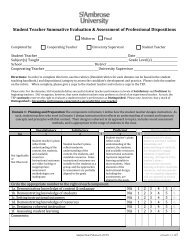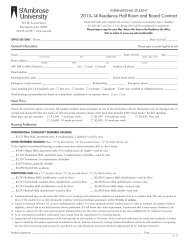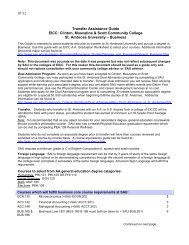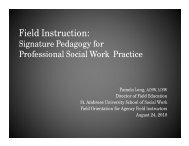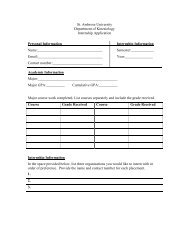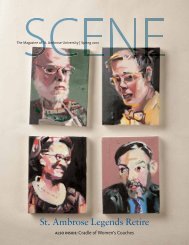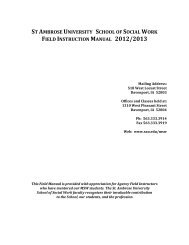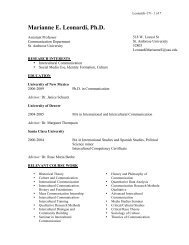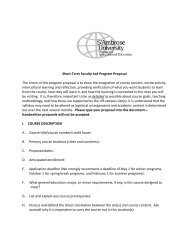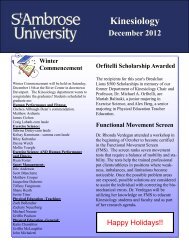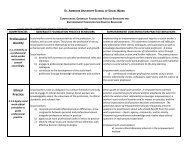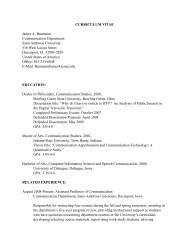student disability services faculty handbook - St. Ambrose University
student disability services faculty handbook - St. Ambrose University
student disability services faculty handbook - St. Ambrose University
You also want an ePaper? Increase the reach of your titles
YUMPU automatically turns print PDFs into web optimized ePapers that Google loves.
Do I need to avoid using terms like see, hear, and walk?<br />
No, speak naturally, and use you own language. For example, it is appropriate to say “Nice to see you” to a<br />
person who is blind. Even people with disabilities use everyday words related to their <strong>disability</strong>. However,<br />
it is recommended that professors use multi-sensory instruction whenever possible.<br />
Is it really fair for a <strong>student</strong> with a <strong>disability</strong> to get extra time on an exam? Wo uldn’t every<br />
<strong>student</strong> do better if they were given extra time?<br />
Fair does not always mean equal. Fair means giving a <strong>student</strong> what he or she needs. Extended time<br />
minimizes the impact of the <strong>disability</strong> on the <strong>student</strong>’s performance. <strong>St</strong>udents with disabilities are not<br />
given an unfair advantage, but are given the opportunity to perform to the best of their ability without<br />
regard to the <strong>disability</strong>.<br />
How do I find out more about working with <strong>student</strong>s with a particular <strong>disability</strong>?<br />
The Appendix contains guidelines for working with <strong>student</strong>s with hearing impairments and for working<br />
with a sign language interpreter.<br />
Information about other disabilities may be obtained from <strong>St</strong>udent Disability Services.<br />
If someone with a visible impairment arrives at class early and seems to be having difficulty<br />
getting to his or her seat, should I offer assistance?<br />
If it appears that a <strong>student</strong> is having difficulty getting around in the room, then ask if he/she would like<br />
some assistance. If the answer is no, please allow him/her to continue independently barring any threat of<br />
injury to self or others.<br />
Back to Table of Contents<br />
2011-2012 <strong>St</strong>udent Disability Services Faculty Handbook<br />
16




